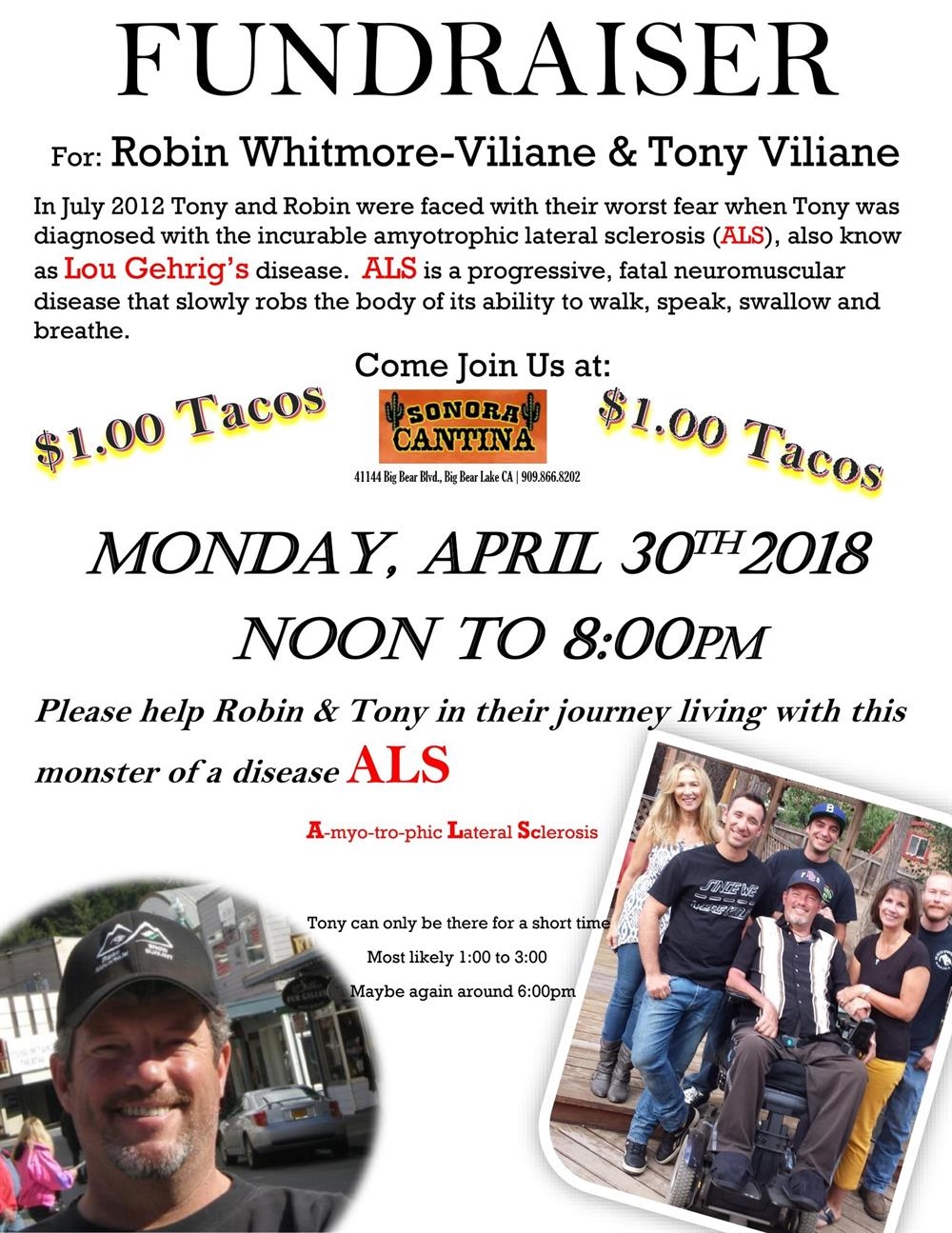 A Rude Awakening
A Rude Awakening
Submitted by Robin Whitmore
In July 2012, Tony Viliane and wife Robin were faced with their worst fear, when Tony was diagnosed with the incurable Amyotrophic Lateral Sclerosis (ALS), also known as Lou Gehrig’s disease. ALS is a progressive, fatal neuromuscular disease that slowly robs the body of its ability to walk, speak, swallow and breathe.
ALS, or Amyotrophic Lateral Sclerosis, is a progressive neurodegenerative disease that affects nerve cells in the brain and the spinal cord. A-myo-trophic comes from the Greek language. "A" means no. "Myo" refers to muscle, and "Trophic" means nourishment – "No muscle nourishment." When a muscle has no nourishment, it "atrophies" or wastes away. "Lateral" identifies the areas in a person's spinal cord where portions of the nerve cells that signal and control the muscles are located. As this area degenerates, it leads to scarring or hardening ("sclerosis") in the region.
Motor neurons reach from the brain to the spinal cord and from the spinal cord to the muscles throughout the body. The progressive degeneration of the motor neurons in Amyotrophic Lateral Sclerosis eventually leads to their demise. When the motor neurons die, the ability of the brain to initiate and control muscle movement is lost. With voluntary muscle action progressively affected, people may lose the ability to speak, eat, move and breathe.
The motor nerves that are
affected when you have ALS are
the motor neurons that provide voluntary movements and muscle control. Examples
of voluntary movements are making the effort to reach for a smart phone or step
off a curb. These actions are controlled by the muscles in the arms and legs.
There can be significant costs for medical care,
equipment and home health caregiving later in the disease.
Since ALS attacks only motor neurons, the sense of sight, touch, hearing,
taste and smell are not affected. For many people, muscles of the eyes and
bladder are generally not affected.
Receiving a
diagnosis of Amyotrophic Lateral Sclerosis is challenging and overwhelming.
Caregivers
Caregiving is
willingly undertaken out of love and devotion to the person with ALS and can be
a source of great personal satisfaction. Yet, over time, caregiving exacts an
enormous emotional toll, and can adversely affect the caregiver’s physical and
psychological health, threatening their ability to continue providing care.
Concern for the ALS patient often causes the caregiver to overlook her/his own
needs eating properly, getting enough rest, taking time to pursue one’s own
interests.
Memories …
.jpg)

COME &
ENJOY
Monday TACOS
with TONY’s Friends & Family!
